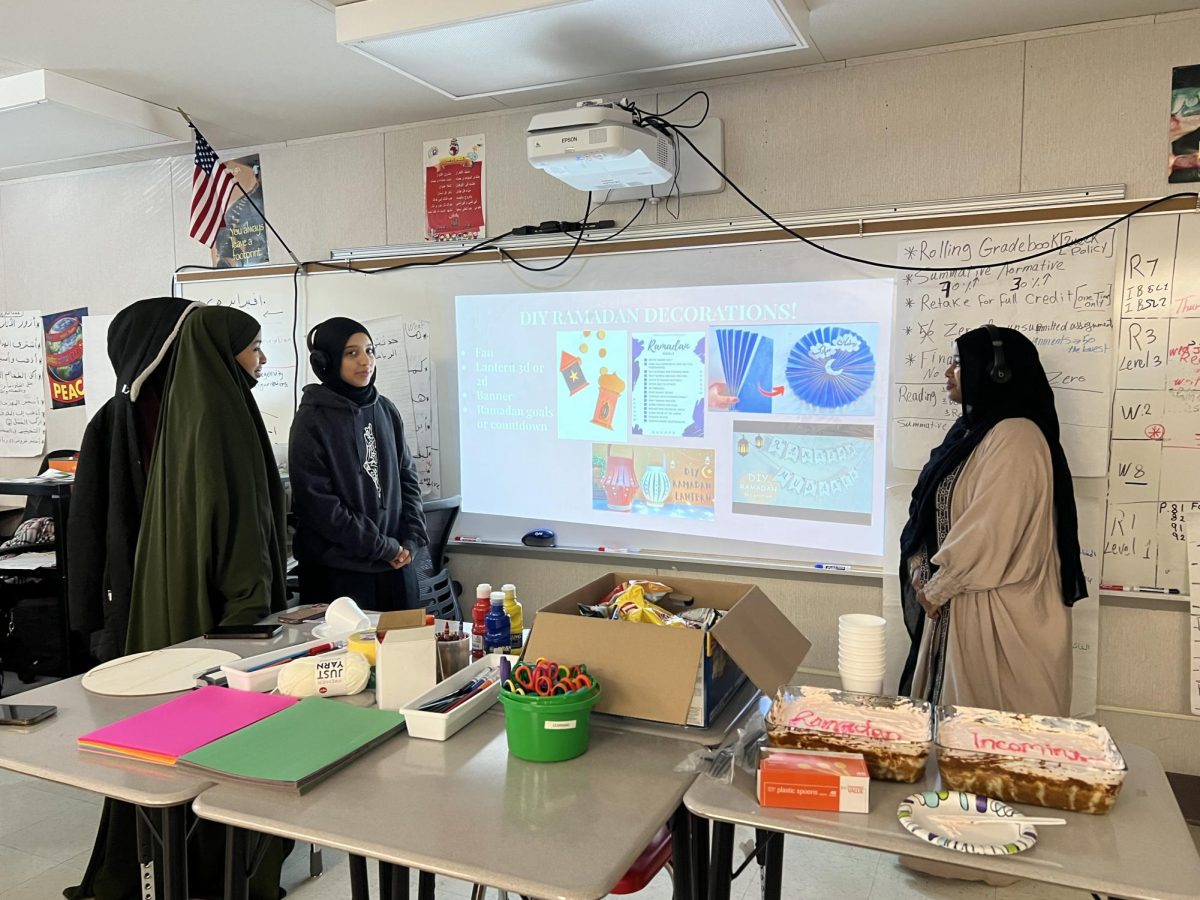As election night in America concluded in the early morning of Wednesdạy Nov. 6, Donald Trump was the winner of the 2024 election after beating out current Vice President Kamala Harris. The impact of this important presidential election has many results, including significant impact on U.S. foreign policy in the Middle East and ongoing conflicts in Gaza, Israel. Election results are having students believe this could resolve conflict, while others think differently. “I don’t think it will be resolved, because I think the Gaza situation is bigger than the U.S. presidential election,” senior Maya Nuru said.
As the U.S. presidential election results impact international relations, high school students particularly those of Palestinian descent are left grappling with the implications of U.S. foreign policy, especially regarding Gaza and Israel. For Palestinian-American students, the ongoing situation in Gaza is not just a distant political issue; it is a personal matter that resonates deeply within their families and communities as many of these students may have relatives still living in Gaza. Students with Palestinian backgrounds may feel alienated if they perceive a lack of empathy or understanding from others, while those who strongly support Israel might feel frustrated by what they see as biased portrayals of the conflict.
For educators, this can present a challenge in fostering dialogue that is both respectful and productive, without oversimplifying such a complex issue. Donald Trump has long been a strong supporter of Israel, and his presidency will likely continue this trend. However, he has expressed frustration with Israel’s military operations in Gaza, calling for an end to such actions while still emphasizing the importance of Israeli security. “His support for Israel policies may create friction with Palestine leadership potentially complicating diplomatic efforts,” senior Noah Ezechiel said.
During his first term, Trump took several steps to strengthen the U.S.-Israel relations, including recognizing Jerusalem as Israel’s capital and moving the U.S embassy there. Trump’s position on Gaza is complex. While he supports Israel’s right to defend itself, he has also hinted at a more pragmatic approach, suggesting that Israel should seek to de-escalate tensions when possible. This means that under a second Trump administration, we can expect continued strong U.S. backing for Israel, but potentially a call for more restraint in its military actions, particularly in Gaza.
Though this can foster a little bit of hope for a change, is it really true, will Trump make even the slightest difference? “I don’t believe Trump genuinely acknowledges the situation happening in Gaza,” junior Aarushi Lamichhane said. Let’s compare Trump and Harris on the crisis of foreign policy. Both Trump and Harris, despite their differences, share a troubling similarity in their foreign policy outlook on Gaza: neither seems to offer a viable solution to the ongoing crisis.
In essence, both candidates are unlikely to bring any meaningful change to U.S. policies in Gaza. For those concerned with the humanitarian crisis in Gaza, neither candidate seems to offer a path to peace that addresses the underlying issues. “It is truly frustrating that both of our candidates from different parties are very pro Israel, and they want to keep that way, so I don’t know who will protect Gaza, ” senior Kiran Padilla Aleman said.
The impact of the 2024 U.S. election result on the situation in Gaza could evoke a range of feelings among students, especially those with personal or familial ties to the region: For Palestinian-American students, the result might create anxiety, frustration, or even hopelessness. U.S. foreign policy, whether under Donald Trump or Kamala Harris, has historically been perceived as siding with Israeli policies, often overlooking the humanitarian needs of Palestinians in Gaza.
Students who have family members or close connections in Gaza may feel especially vulnerable, as any continuation or intensification of military operations in the region directly affects their loved ones. For these students, the election result could also deepen feelings of alienation. They might feel that the political system whether at home or abroad is failing to address their concerns or the realities faced by their families in Gaza.
They may see the election results as a reinforcement of the status quo, where the U.S. continues to prioritize strategic alliances over humanitarian concerns, making them feel as though their voices and struggles are not fully acknowledged.
For those with Palestinian heritage, the situation in Gaza will likely remain a deeply personal and emotional issue that is shaped by their connection to their identity, family, and the broader political context. The U.S. government’s stance under President Trump may not drastically change the political landscape, but for these students, every shift in policy is a reminder of how far they still have to go to see their homeland’s issues fully addressed on the global stage. For Palestinian-American students, the question remains: How can they, as part of a new generation, work towards a future that moves beyond the cycle of violence and toward true peace and understanding?









